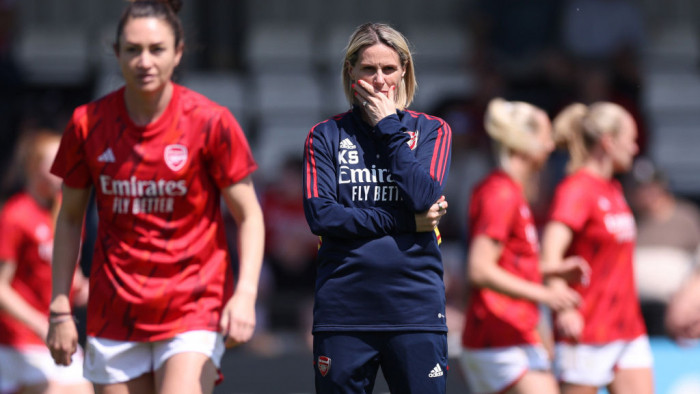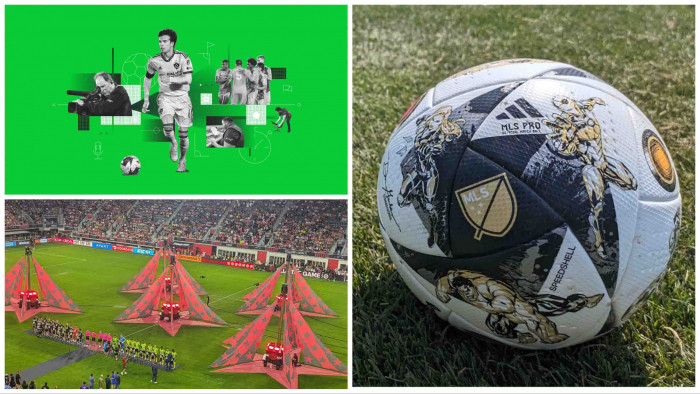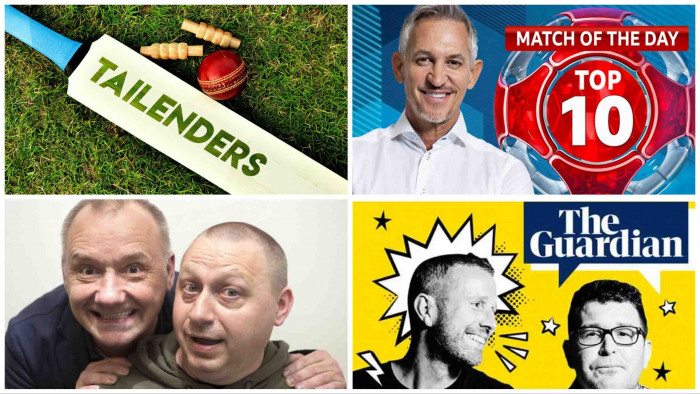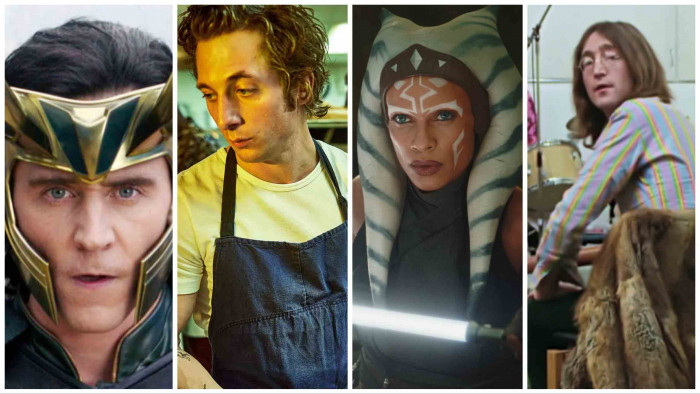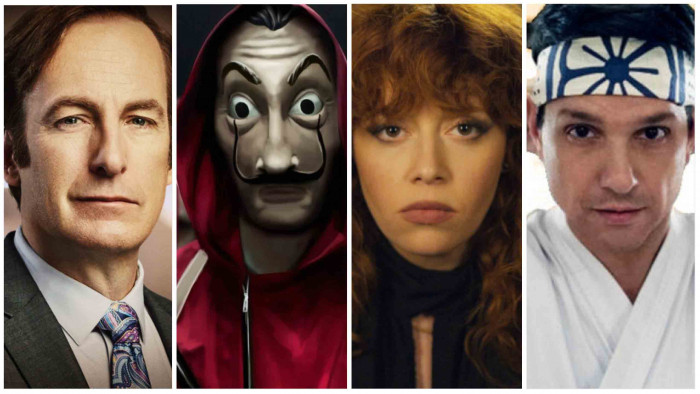Paul Gascoigne: "I wanted to entertain the people"
Paul Gascoigne: "I wanted to entertain the people"


For now, let’s forget about the tawdry tabloid stories. Ahead of a new documentary about his life, Paul Gascoigne takes Leo Moynihan through his glory days
“Gazza, are you ready for your close-up?”
Paul Gascoigne is in a studio in the East End of London. For two days he has been cooped up with a film crew, chronicling his life for a new film celebrating his career. A dab of make-up and he answers. “Ready? I was f*cking born ready.” A cheeky grin and he’s away.
Was he born ready? Talent-wise, yes. His was given, not taught. Unorthodox, un-English and seemingly un-manageable, Gazza is rightly lauded as England’s most naturally gifted footballer.
The question though, still remains. Was he born ready? The mercurial skill is one thing but when it came to the trappings of fame and fortune, here was a man who struggled with what the world wanted from him. “On the football pitch, I felt safe,” he says in the new film Gascoigne, and it’s there the 48-year-old wants to be remembered. Life though – as he well knows – is never that easy.
Here, Paul Gascoigne tells us about being Gazza…
As a child, how natural did it feel to have a football at your feet?
I started off with a tennis ball. I took it everywhere. Then, when I was seven, my dad came back from working as a hod-carrier in Germany and brought me a football. I kicked that thing for hours and hours. I was obsessed. It seemed to stick to my feet. I was eight and playing against 12-year-olds and seemed to be beating them for fun.
Were you playing organised games then?
No, we were on the street. We’d use the kerb. If you hit the kerb and then caught the ball you’d get an extra point. We’d make stuff up.
Was it strange to be formally coached for the first time?
When I was 13, I went down to Southampton and I remember saying to my dad, “I don’t like it, the coach is sh*t.” I liked playing against bigger boys and I could stand up for myself. I would always try things and I guess coaches didn’t always appreciate that. After my England debut, Bobby Robson came into the dressing-room and said, “We’re going to need two balls, lads.” He was right.
When did Newcastle United step in?
I was 14. I’d had a go at Middlesbrough and at Ipswich, but I was waiting for the knock on the door from my local club. That came one day. There was a knock. Mum said there’s a man to see you. He was from Newcastle, they had seen me play and I became an apprentice. I left school soon after and got on with the job I loved. When I left, my teacher told me I had a one in a million chance of making it. After the 1990 World Cup, I went back to that school, knocked on his door and said, “Remember me?”
Jack Charlton gave you your professional debut. How did you get on with him?
Jack was a legend. I remember him coming to the club. “I hear you’re a good player,” he said. “I am,” I said back. “How long have you got left on your contract?” he asked. “About two years.” “You’ve got two weeks, you fat bastard,” he said. “Go lose some weight or you’re out.” I gave up the fizzy drinks and Mars bars, and ran every night. Soon after, I captained the youth team to the Youth Cup. That was the Friday night and I was told I’d be playing for the first team on the Saturday. I sh*t myself and said I was too tired, but they wouldn’t take no for an answer.
When you arrived, Kevin Keegan had retired – the fans were in need of a hero. Were you motivated to become just that?
I wanted to entertain the people. I had played a bit with Chris Waddle and Peter Beardsley and that helped me learn, but I had huge ambitions. I so wanted to play for England but I was worried that I might be overlooked at Newcastle. I loved Newcastle, but I needed to be playing with the best players, and it wasn’t long before a move was being talked about.
Why Tottenham?
I had told Alex Ferguson that I’d go to Manchester United. He went off on his holidays but I got a call from Tottenham. They’d match the wages and all that, but they’d also buy my parents a house. I called my dad and he said, “What the f*ck are you waiting for? Oh and can they get me a car as well?” I called Terry Venables and asked if I could get a car. No problem. Then my sister called me and said, “I want a sun bed!” So I called Terry and asked for a sun bed. No problem.
How did Ferguson take the rejection?
I sh*t myself. I never called him! He didn’t speak to me for about six years.
How was life in the capital?
I lived near Chris Waddle, which helped. I didn’t venture into the city much, as I knew I was now big news and I’d be followed. I met my ex-wife and I still managed to get out and soon got used to the attention. I was on good money – about two and a half grand a week – got a good car and became a right cockney.

It wasn’t certain you’d make the 1990 World Cup squad. Were you always confident?
I’d made my debut and done well, but we had a game against Czechoslovakia and Bobby said to me, “This is your chance, show me what you can do.” I had a blinding game, set up three, scored one. After that I knew I was in. What a buzz.
Did you know you galvanised the players who had been to World Cups before?
They had to look after me! I remember Trevor Steven had been with me and then dropped on the sofa and said, “Come on lads, who’s next?” I’d knackered him out playing tennis or table tennis, and it was up to someone else to take over.
It’s fair to say that the Netherlands game was the night you arrived…
Bobby changed the tactics. We went to five at the back, and that gave me the freedom. I remember looking at their team, some brilliant players: Marco van Basten, Frank Rijkaard and, of course, Ruud Gullit. I looked at them, and thought, I’m better than you. The first time I got close to Gullit, I couldn’t resist it. I pulled one those dreadlocks on his head and ran off. I ended up doing a Cruyff turn on the Dutch that night. Not bad.
Skipping ahead to the semi-final against Germany, why did England play so well that night?
We were so fired-up. We had a great team but didn’t always play well enough. But these great players – Gary Lineker, Waddle, Beardsley, Stuart Pearce – they all played at their best. Terry Butcher was so up for it, my God.
Did you enjoy Butcher’s chest-thumping motivation before a game?
I was probably fishing in the bath or something. Terry walked around the dressing-room saying, “This is my f*cking house, no one comes into my f*cking house,” with a scary look on his face. I was just desperate to get out there and face Lothar Matthäus.
The booking. Gary Lineker famously said to the bench, “Have a word with him” as the tears came. Was there a word, and were you listening?
I went numb. For a couple of minutes I was out of it and then it kicked in, I was missing the final. “Get a grip,” I thought to myself. “Don’t disappear, there’s still loads to play for.”
Coming back home, did you realise life would never be the same again?
We were on the runway, in the plane and could see thousands of people had turned up. Lineker came to me and said, “Be careful.” I had no idea what he meant. It was mad. The people. It was mental. Brilliant but mental. No one could prepare for that. It was so crazy. The press harassment started immediately and it still goes on today. Gary was right.
For all the madness that followed the World Cup, your football got better and better. Was the free-kick against Arsenal in the FA Cup semi at Wembley your best moment?
It didn’t really count. It was only David Seaman in goal. He’s sh*t. No, it was amazing. Lineker told me, “Have a dig” and I did.
Were you too pumped-up for the final?
Yes. I hadn’t slept a wink the night before. The Valium hadn’t worked! I wanted to get stuck in. I had done a coaching video the week before the final and was telling kids how to tackle. Well, I got it wrong that day, smashed my ligaments and that was that. Some have said that Terry Venables should have calmed me down before that game, but no one could have.
Where does Venables rate among the coaches you worked with?
He was brilliant. He knew me. If I had a great game, he’d say, “You’re crap.” He knew how to get more from me. If I was crap, he’d say, “You were great.” Terry was a wonderful coach and man manager.
You eventually moved to Lazio. Were you proud of your time in Rome?
Oh, that was a shock. I’ve never trained like that in my life. You become an athlete and then a footballer. It was big. The best players were there: Van Basten at Milan, Jürgen Klinsmann at Inter, Diego Maradona at Napoli. I played more like Madonna! No, I loved it. I scored my first goal against Roma in the derby and that was just… wow. The pressure on the players was immense.

Have you been back?
I got out there quite recently. I was out in the countryside and 6,000 people turned up to see me, still singing the same songs.
Why did you move to Rangers from Lazio?
I could have gone to Chelsea or Aston Villa, but Rangers were so massive at the time and I loved every minute of it. I scored a lot of goals, won a lot of trophies, played great stuff and got my smile back.
That smile was evident at Euro ’96 in England. Tell us about he build-up to that tournament.
We’d gone to Hong Kong and the whole drinking incident in the dentist’s chair happened. I was always making headlines back then, so it was no surprise I got slaughtered. Terry was great, though. He told us to enjoy ourselves and we had. It got us motivated for the tournament and we did great.
Was that the best England team you played in?
It’s hard. The 1990 team was so good. I’m just so fortunate to have been in both.
Do you wake up in a cold sweat thinking how close you were to scoring the winner against Germany in the ’96 semi-final?
Oh, I have nightmares, aye. I would have been a hero. I held back a bit thinking the goalie might touch it and then it was too late.
Everyone saw how much playing for England meant to you. Can you describe the moment Glenn Hoddle told you you weren’t going to the 1998 World Cup?
It took a year to get over. He told me and I kicked his door in. I was gone. He wanted to explain why, but I wasn’t listening. I smashed the room up. I didn’t agree with
the decision. I went abroad and didn’t watch any of the games.
What do you think of English football today?
I worry. The players don’t know what pressure is. I had pressure. I’m not a big fan of the Premier League. Too many foreign players, and look at the national team because of it. The English kids aren’t getting a chance. The FA says it will do something about it, but it isn’t. As far as I’m concerned, it does jack sh*t.
Can you imagine what you’d be worth today?
Unbelievable. I wouldn’t be sitting here talking to you, mate.
How’s life in general? Are you happy now?
I’m loving life at the minute. I try to keep things simple. The press still makes up stuff about me, but I’m winning loads of court cases against them, so happy days.
Is it important to be adored?
I’m a national treasure. That’s what they tell me. I get old biddies coming up to me checking I’m OK.
If you could sit down with your 18-year-old self, what advice would you give him?
I’d tell him to look after his finances a bit better, but otherwise, I’m not sure what I would want to change. I am Gazza: what you see is what you get.
Gascoigne is at cinemas 8 June for one night only, then on DVD, Blu-ray and download from 15 June
[Images: Mark Arrigo, Entertainment One, Amber, Allstar]
